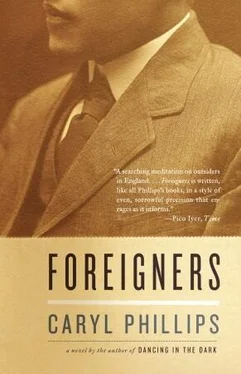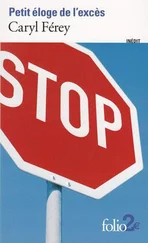Having ordered lunch, the children now begin to talk to each other. Suddenly I feel the pressure to pose a question to the sisters, but it is Annette who asks the first question. 'Do you think my dad would have got proper recognition if he wasn't black?' I have to think for a moment for this is a somewhat blunter version of a question that I was hoping to pose to the sisters. 'Although,' continues Annette, 'somebody told me that there are only two statues to black men in England. One is just along the river here, the one for Nelson Mandela, and the other is of our dad. The one that's in Warwick.' For a moment it occurs to me that in a sense she has answered her own question, but she continues. 'But there should be more recognition for black people, shouldn't there? And the one in Warwick has happened relatively recently.'
Two days after winning the world middleweight title, twenty-three-year-old Randolph Turpin found himself on the balcony of Leamington Spa Town Hall with a microphone before him and being asked to make a formal speech. He began, but clearly he was not comfortable with the situation he found himself in and so he departed from the text and decided to thank the crowd in what he called 'me own language'. There was nothing pretentious or affected about Turpin. He was a working-class kid who was neither overly proud of, nor ashamed of, his roots. He was not hoping to secretly ascend through the ranks of the class system and become 'accepted' by the middle or upper classes. I suggest to the sisters that a combination of race and class probably operated against their father being fully recognised, and I ask them what they think he would be doing now were he still alive. Both are sure that he would still have something to do with boxing, probably working with youngsters as a trainer of some kind. 'How about media work?' I ask. They think for a moment, but I quickly continue. 'His face wouldn't have fit, right?' Charmaine nods. 'Yes, that's probably right.' In England issues of race and class frequently operate hand in hand, and had Randolph Turpin lived it seems clear to me that he would undoubtedly have 'suffered' as much for his class as for his race.
Annette steals a quick glance at Charmaine. 'You know, our grandmother had to deal with a lot of racial abuse after her husband died. She got it because she had black kids. Five of them, but she always stuck by her children. Mum told us that. Mum never told us anything about anybody that was bad. When we were growing up she just let us make our own minds up about things.' Charmaine nods, and then takes over from Annette. 'But if we wanted to know then she would tell us her opinion, but only if we asked. After our dad died we left Leamington Spa, but we would sometimes come back and see people. Our mum would bring us from Wales, but she didn't badmouth anyone.' Annette's eyes light up. 'For instance,' says Annette, 'I idolised my Uncle Dick.' She stops abruptly. 'Mum never said anything to me until I started to ask questions about what had happened with the family, but even then it was just her opinion. You know, you should see pictures of her back then in the fifties. She was beautiful and glamorous, just like a film star. But when it came to family and questions about our dad she just let us make our own minds up.'
Shortly after her husband's death, Gwen took her four daughters back to Wales where she once again became part of a Welsh-speaking community. But none of her daughters can speak Welsh, which leads me to wonder if they consider Wales to be home. Charmaine casts a quick glance at the two children, who are now listening carefully. 'In a sense, yes, of course, but Leamington Spa is also home. Maybe it's really home.' Annette looks across at her younger sister and picks up her cue. 'When we go there we always take flowers for the grave, and the last time we were there we went for a walk down the street we used to live on, and it felt strange. Of course, the café is no longer there as it's now a car park, but the place is full of emotions, both good and bad. It's still home, though. At least to me.' She pauses. 'Mum told us that towards the end she would have preferred to sell up and go back to the Great Orme. This was when they still had both the café and the Great Orme, but for some reason Dad made his choice and he chose the café and Leamington and Mum went along with it. But when we did go to Prestatyn after his death we were never made to feel like outsiders in Wales.'
After we have all finished eating we pause for a moment and think about ordering dessert. It transpires that only the children are interested and Charmaine begins to guide them through the choices. Annette is deep in thought, and then she looks up. 'You know what my mother's father said to my dad when he told him that he was going to marry Mum? He said, "Just take care of my daughter." That's all he said. "Just take care of my daughter." My dad was the only black man around that part of Wales, and maybe the only one some people had ever seen, but in Wales everybody accepted him for what he was. They were friendly and generous, and he didn't get any abuse. They didn't care that he was famous, and they didn't want anything from him. For the first time in his life he was free, and he was also among nature. He liked to work on the hay in the fields and do farm work on my granddad's farm, but when he was in Leamington if he had a fiver in his pocket they'd want £4.50 of it and you know he'd just give it to them. In a way he could be happy in Wales because he could just be himself, and for him it was really a big change from Leamington. I reckon things might have been different if they'd left Leamington and gone back and took over the Great Orme again like Mum wanted. But that's not what they did. They stayed in Leamington.'
Having finished their dessert, the two grandchildren run off to play by the water's edge. Annette is the more talkative of the sisters, but being five years older her memories of her father are undoubtedly stronger than Charmaine's. We order coffee, and Charmaine keeps glancing anxiously over my shoulder in order that she might keep an eye on the children. Annette remembers that when she was a girl there was another black family in Leamington Spa. 'Dad used to leave the café at the end of the day and take plates of food, stacked up high, to other poor families in Leamington, including this black family across the street. He'd still feed them even when we had nothing, but he was like that. He looked after loads of people in Leamington, poor people, old people, and he didn't make a fuss about it.' Annette pauses. 'But there was this black family, and years later I met a guy who was a kid in the family and he remembered my dad bringing them food. I think my dad made a lot of black kids in England realise what it was possible to achieve, so his story isn't just gloom. I'm always meeting people who remember Dad, and whenever they talk about him they always smile. Nobody has a bad word to say about him, isn't that right?' Charmaine nods her head somewhat sadly, and then she picks up the thread of what Annette has been saying. 'You see, Dad lost a lot, but he always had dignity and he was good to people.' Suddenly Annette remembers. 'He made that trip to New York near the end, and Mum said that it made a big difference to him because he was really down.' I mention to them both that Muhammad Ali was a fan of their father, and he talked extensively with Turpin at the dinner that followed the Sugar Ray Robinson celebrations at Madison Square Garden in December 1965. Both sisters' faces light up. The children have now returned from the river and Charmaine turns to them. 'Did you hear that?' They both look blankly at her. 'About your granddad and Muhammad Ali.' The kids have not heard. 'Don't worry,' says Charmaine, 'I'll tell you later.'
Randolph Turpin's story does not end in 1966 in tragedy. His proud daughters still love and revere the great fighter, and in time the grandchildren will too. For Annette and Charmaine, their father's life can never be reduced to the cliché of the naïve boxer having been ripped off and then committing suicide. To them, Randolph Turpin will always be a happy, loving father who used to be a boxer. Unfortunately their father's situation was such that he had little choice but to carry the accumulated hurt and frustrations of his boxing career into what should have been many happy years of retirement with Gwen and the children. As we wait for the bill, Annette pinpoints the heart of the story as she sees it and as I have grown to understand it. 'He felt betrayed.' This has to be true; Turpin's inner turmoil towards the end cannot have been simply fuelled by anxieties over a lack of money, and anger and frustration at having allowed himself to be used by people. There must have been a deeper, and in the end a far more destructive, hurt that was engendered by knowing that those who were closest to him had actually double-crossed him. He lived with this hurt for many years, carefully keeping it from his immediate family, and the great mystery is how he survived for so long while shouldering this oppressive burden of betrayal. Looking at his children I now know how. After years of turbulence, both private and public, he finally found in his Welsh girl, Gwen, the sustaining love of a loyal and devoted wife, and four daughters whom he adored. He persevered for them, but in the end the mounting debt, the crushing sense of abandonment, and a profound heartache that he was somehow failing the family he loved, proved too much for him. To the end, he was Beattie's most sensitive child. Annette continues. 'But he never hated anyone. In that sense he was just like Mum. He just let people make up their own minds.'
Читать дальше











![Unknown - [Carly Phillips] The Bachelor (The Chandler Brothe(Bookos.org) (1)](/books/174132/unknown-carly-phillips-the-bachelor-the-chandle-thumb.webp)
